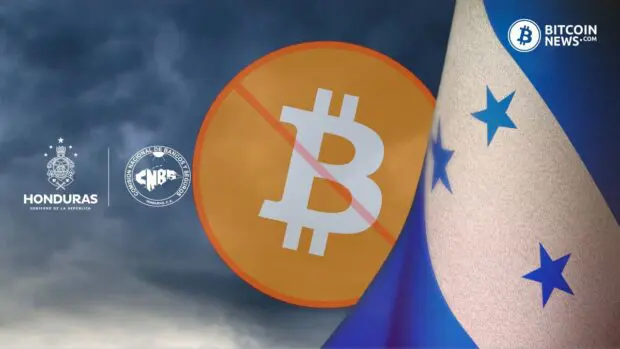In recent developments, Honduras has implemented stringent measures regarding digital asset trading, sparking discussions on the global stage. The National Banking and Securities Commission (CNBS) of Honduras has taken a decisive stance, citing concerns over money laundering, fraud, and the challenges of regulating multi-jurisdictional digital platforms.
CNBS Honduras Stance: A Regulatory Overview
Honduras, through the CNBS, has imposed a ban on financial institutions participating in digital assets trading and holding. According to the regulatory body, the move aims to safeguard the national financial system’s integrity by addressing the risks associated with the decentralized nature of Bitcoin, as there are a number of bitcoin-related businesses operating in the country. CNBS believes that absence of specific regulations exposes users to potential fraud and operational issues.
The ban, effective immediately upon its announcement, specifically prohibits local financial institutions from engaging in trading or holding of unauthorized digital assets. The CNBS highlights concerns related to the lack of regulations for cryptographic assets in Honduran legislation, leaving users vulnerable to fraud, operational challenges, and legal uncertainties. The risks of illicit activities such as money laundering and terrorism financing further drove the regulator’s decision.
Institutional Interest and Global Perspectives
Honduras’ ban comes at a time when institutional interest in the sector is growing globally, with the United States witnessing the launch of Bitcoin Exchange-Traded Funds (ETFs). In the meantime, the banking sector in the U.S. is pushing for regulatory reviews to facilitate active participation in the digital asset market. This shift reflects a changing trend in digital asset regulation in the U.S., indicating the sector’s evolving importance.
While Honduras tightens its grip on digital assets, Hong Kong takes a different approach, considering regulatory reforms to expand trading activities. Unlike Honduras, Hong Kong authorities are exploring stricter licensing requirements and testing procedures for over-the-counter (OTC) digital asset trading platforms. The aim is to enhance regulatory oversight and address concerns related to anti-money laundering measures.
Notably, El Salvador is another nation that has taken a friendlier approach towards digital assets, specifically Bitcoin. The south American nation adopted bitcoin as legal tender in 2021, under the leadership of its pro-bitcoin president, Nayib Bukele.
Immediate Effects and Enforcement
The CNBS resolution, effective immediately, bans institutions under its supervision from maintaining, investing, or trading in “cryptocurrencies, crypto-assets, virtual currencies, tokens and related assets not authorized by the Central Bank.” The immediate enforcement signals the urgency and seriousness of Honduras’ commitment to regulating the digital asset space, aligning with concerns over fraudulent activities and money laundering risks.
Honduran law currently lacks specific regulations for digital assets, leading to challenges in controlling platforms operating within its borders. The central bank emphasizes its inability to guarantee such transactions, given their unregulated status. The regulatory watchdog cites potential risks associated with fraud, money laundering, and terrorist financing, underscoring the need for decisive regulatory action.
Conclusion
Honduras’ recent ban on digital asset trading reflects a cautious approach amid global debates on the integration of digital currencies into financial systems. While concerns over fraud and money laundering drive these regulatory measures, the global landscape showcases varying perspectives, with Hong Kong, United States and El Salvador exploring expanded trading activities. As the market continues to evolve, countries navigate the delicate balance between embracing innovation and mitigating potential risks.










